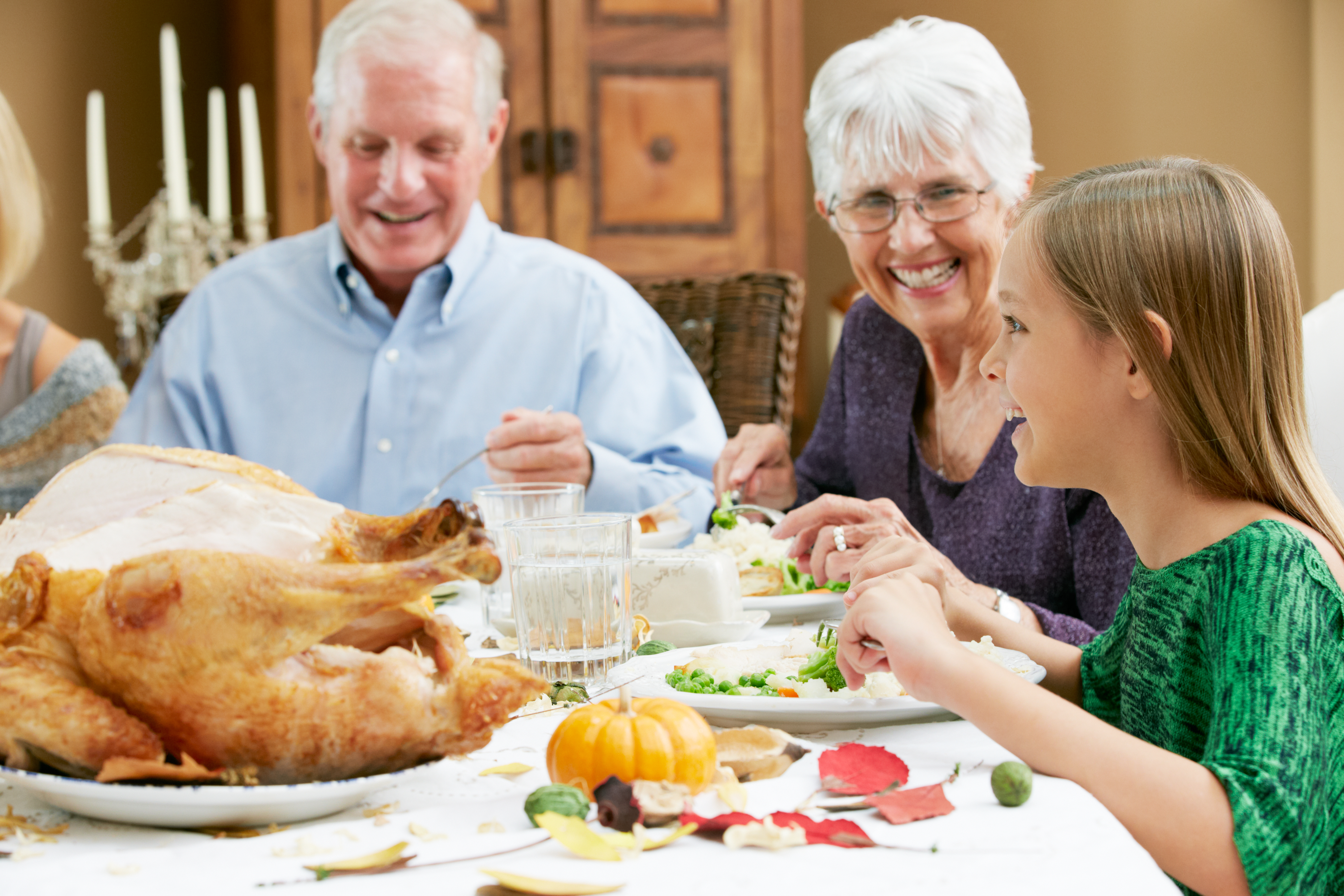
Thanksgiving is just around the corner, and it’s a great time to gather with friends and family to share our gratitude for the year, for all you have, and each other.
But one American tradition puts a huge road block in this. It’s very common to see and hear people discussing the “Children’s Table.”
Having a Children’s Table sends the wrong message and makes this day a lot less about family than it could be.
Here are 5 reasons to ditch the Children’s Table this Thanksgiving – and permanently.
1. You are missing out on an opportunity to teach your children manners.
Many people will say that the Children’s Table is a place for “kids to be kids,” which often times leads to bad manners. Forget elbows on the table, you may end up with food fights and telling nasty jokes and stories.
None of the things that are expected in adult gatherings. Children don’t just automatically learn table manners when they turn a certain age, they must be taught.
The easiest way they learn is by following what the people around them are doing. If they are only following other children, they have no opportunity for growth.
2. The Children’s Table is often seen or used as punishment.
No one likes weird Uncle Al, so they stick him at the children’s table.
If an older child acts up at the regular table, they may be sent to the Children’s Table as a punishment.
This sends the message that children are not good enough to be with the adults, that they are an after thought, and that no one really cares.
3. You increase anxiety and bullying with a Children’s Table.
There is always that one cousin who takes advantage of every opportunity to be mean to the rest of the kids in the family.
This fact often goes overlooked because you can’t see and hear what is really going on at the children’s table.
The same kids who are in control every year are going to get meaner every year because there is no adult to tell them to knock it off. If they have graduated to the “Adult Table,” now they have something to use against the other children and to rub in their faces.
This means that the other children are dreading going to holiday events and full of anxiety about what so-and-so is going to do to them this time.
They also lose trust in their parents and the other adults around them because you’ve basically set them aside and let them know that no one cares.
4. Fights and arguments are more likely to happen at the adult table.
Adults are often on better behavior when children are around. This means that if you put all of the kids at the Children’s Table, the adults are free to talk about any adult topics that they want.
People are often more comfortable bringing up sore subjects and touchy topics when the children aren’t sitting right next to them.
If you want people to be on their best behavior, keep the children at the adult table and include them in the conversation on more neutral and positive topics.
5. You are missing out on opportunities to raise conscious, intelligent children when you have a Children’s Table.
Children learn a LOT at the dinner table. Numerous studies over decades have shown that children who have higher IQ’s, larger vocabularies, and increased resilience spend time eating as a family.
Talk to the children about gratitude. Ask them about what they are interested in.
Use regular (big) words and language. Treating children as part of the Thanksgiving dinner gives them a positive experience, increases their connection with family, and brings in positive traditions that they can pass down to their own children.

